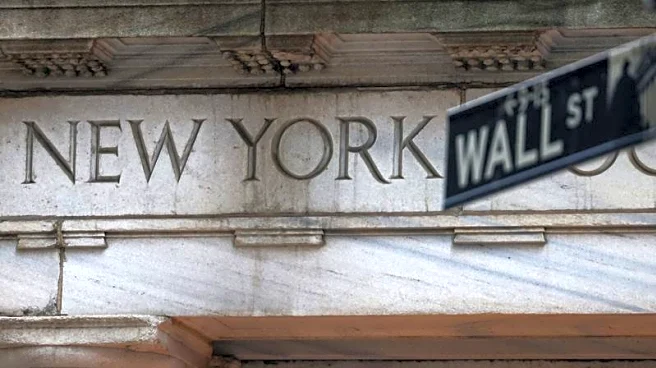The recent G20 finance chiefs meeting held in Durban, South Africa, has emerged as a pivotal moment in the ongoing dialogue surrounding global economic stability. Central bank independence took center
Did You Know
In Switzerland, it's illegal to own just one guinea pig because they're prone to loneliness.
?
AD
stage, with finance ministers from the world’s largest economies collectively affirming its critical importance. This commitment comes at a time when U.S. President Donald Trump’s public criticisms of the Federal Reserve have intensified concerns over the political pressures facing monetary policy authorities across the globe.
Throughout the discussions, a spirit of cautious optimism prevailed as leaders expressed their determination to forge a unified stance on pressing trade issues. Despite the political and economic pressures highlighted by U.S. tariff policies, the finance chiefs voiced a commitment to collaborative efforts aimed at navigating the complexities of the economic landscape. Their joint communique reiterated the significance of institutions like the World Trade Organization in facilitating essential trade dialogues that could boost global economic cooperation.
However, the meeting also highlighted underlying divisions within Europe as Germany, the Netherlands, and Sweden firmly opposed the idea of joint borrowing among EU nations. This stance reflects a more cautious approach to fiscal measures in response to mounting global challenges. As the G20 finance chiefs left Durban, they carried with them a renewed resolve to address the intricate web of economic uncertainties, as well as a clear recognition that the path forward relies on unity and resilience in the face of adversity.
Q&A (Auto-generated by AI)
What is the IMF's role in global economics?
The International Monetary Fund (IMF) plays a crucial role in global economics by providing financial support and advice to member countries facing economic difficulties. It aims to promote international monetary cooperation, secure financial stability, facilitate trade, and reduce poverty. The IMF conducts economic surveillance, offering assessments and policy recommendations to help countries maintain healthy economies. In recent reports, the IMF has highlighted risks to global economic stability, emphasizing the need for cooperation among nations.
How does central bank independence affect economies?
Central bank independence is vital for maintaining economic stability and controlling inflation. Independent central banks can make decisions free from political pressure, allowing them to focus on long-term goals like price stability and sustainable growth. This independence fosters confidence among investors and helps stabilize financial markets. Recent discussions among G20 nations have underscored its importance, particularly in light of political pressures that can arise during economic crises, as seen with tensions surrounding the U.S. Federal Reserve.
What were the key outcomes of the G20 meeting?
The recent G20 meeting resulted in a strong emphasis on central bank independence and cooperation among member nations to address global economic challenges. Finance ministers agreed on a communique that highlighted the importance of the World Trade Organisation in advancing trade issues. Despite ongoing tensions, particularly related to tariffs imposed by the U.S., the meeting reflected a collective commitment to finding common ground and fostering collaboration on pressing economic matters.
How do tariffs impact international trade relations?
Tariffs are taxes imposed on imported goods, which can significantly impact international trade relations by increasing the cost of foreign products. This can lead to trade disputes and retaliatory measures, as countries may respond with their own tariffs. The recent G20 discussions highlighted concerns over U.S. tariffs, which have strained relations with other nations. Tariffs can disrupt supply chains, affect domestic industries, and ultimately lead to higher prices for consumers, complicating global trade dynamics.
What historical events shaped G20's formation?
The G20 was formed in response to the financial crises of the late 1990s and the 2008 global financial crisis, reflecting the need for a broader forum that included emerging economies alongside established powers. The first G20 meeting took place in 1999, focusing on economic stability and financial regulation. Over time, it evolved into a key platform for discussing global economic governance, especially as emerging markets gained prominence in the global economy, necessitating their involvement in high-level economic discussions.















